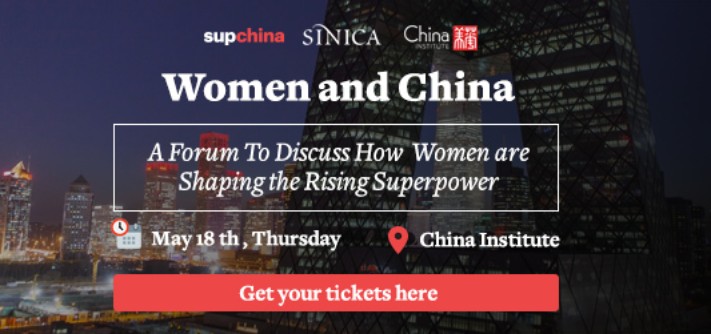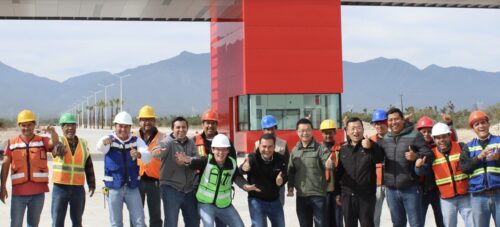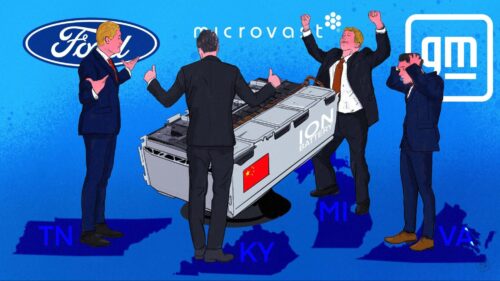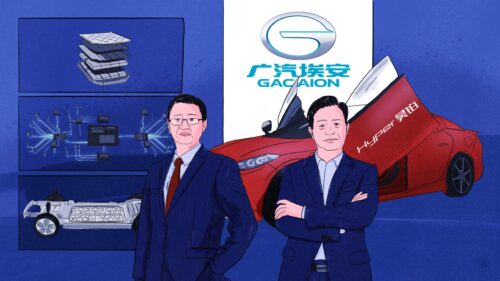Chinese reactions to Trump’s tweets
Top China news for March 31, 2017. Get this daily digest delivered to your inbox by signing up at supchina.com/subscribe.
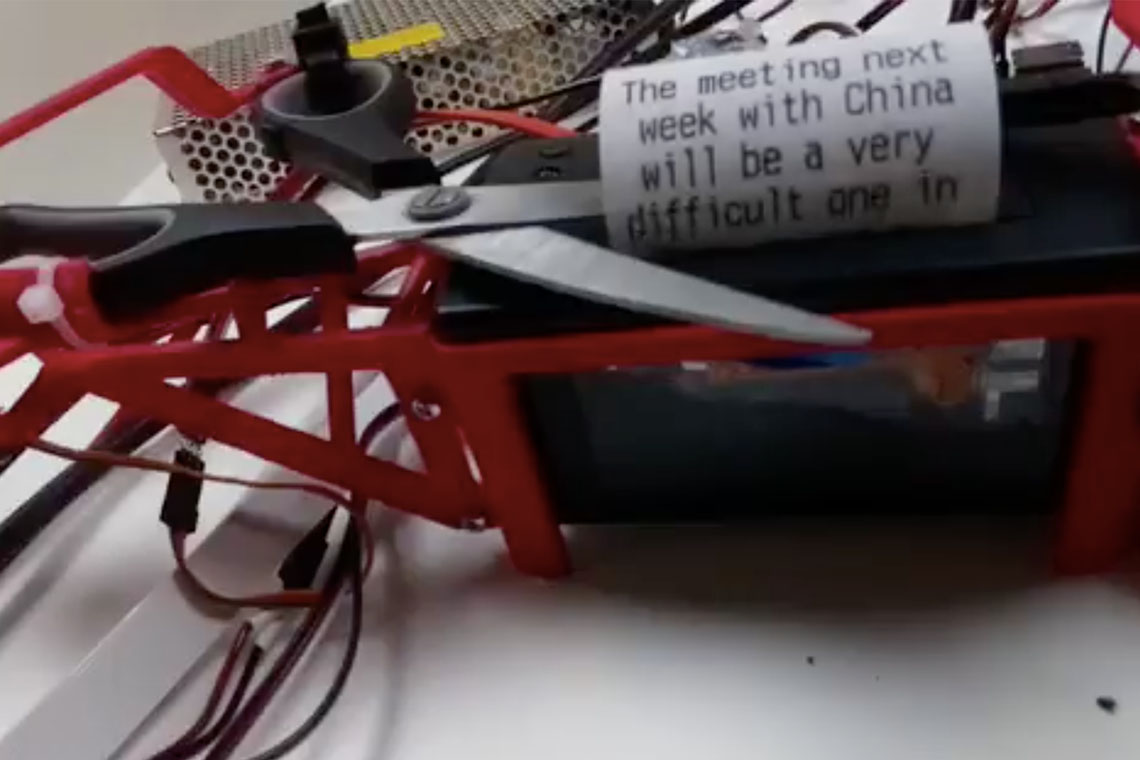
Xi stays cool as Trump tweets tough
Last night Donald Trump tweeted, “The meeting next week with China will be a very difficult one in that we can no longer have massive trade deficits…and job losses. American companies must be prepared to look at other alternatives.” By the time you read this, he will also have signed two executive orders that CNBC says “would seem to confirm that China’s trade relationship with the U.S. is still in the White House crosshairs.” The first order calls for a detailed report on the cause of America’s trade deficits. The second “will support increased collection of penalties foreign companies must pay for receiving support from their home governments” that allow them to sell products in the U.S. cheaply.
The South China Morning Post reports that when asked about Trump’s tweets earlier today, Chinese vice-minister of foreign affairs Zheng Zeguang 郑泽光 “reiterated Beijing’s usual lines that China was not deliberately chasing trade surpluses or seeking trade advantages.” According to the China Daily, Zheng also said that “the two leaders will embark on an in-depth exchange of views on China-U.S. ties and major international and regional issues of common concern.” State media articles on the upcoming presidential meeting have all adopted a similar cool and restrained tone.
There is not much reaction to Trump’s tweets on Chinese social media, but the Financial Times’ Chinese edition mentioned the tweets on its Weibo account. Many of the responses to it are along the lines of “who made the U.S. buy all our stuff without selling its own products?” Currently, the most popular posting (in Chinese) on Weibo when searching for “Trump” (特朗普 tèlǎngpǔ) and “Twitter” (推特 tuītè) is about the Burned your tweet account that shows a robot that prints out and burns every new tweet by the American president.
Ear grown on man’s arm transplanted to his head
In November last year, Chinese media first reported and published photos of an ear being grown on the arm of a Chinese man who had lost one of his in an accident. The surgeon who planned the procedure was Guo Shuzhong 郭树忠, who performed China’s first face transplant in 2006. News comes today that Dr. Guo has successfully transplanted the new ear to the patient’s head at a hospital in Xi’an, Shaanxi Province.
Viral video Friday
Today on The China Project, we present a compilation of this week’s most popular short videos on the Chinese internet, produced by Jia Guo.
China spends billions in Egypt to woo the Middle East
The latest episode of the China in Africa podcast examines “why China thinks the timing is right to make a new effort for expanded influence in Egypt and the broader Middle East.” You can listen to it here.
New foreigner work permit system goes national tomorrow
China’s new work permit and visa rules will be implemented in April. The China Law blog has a useful review of the rules and some advice about foreigner employment contracts.
—Jeremy Goldkorn, Editor-in-Chief
This week on The China Project
- How does healthcare in the U.S. compare with China’s?
- Video: Problems in China’s healthcare system
- Translation: New laws to take effect on April 1, 2017
- China’s push into Eastern Europe: A conversation with Martin Hála
- Sinica Podcast: China’s push into Eastern Europe: A conversation with Martin Hála
This week’s news roundups are:
- Mar 27: The selection of Carrie Lam
- Mar 28: Violent protests in Paris after police shoot Chinese man
- Mar 29: Xi plants trees, Trump plans smog
- Mar 30: Will China start sorting its waste?
This issue of the The China Project newsletter was produced by Sky Canaves, Lucas Niewenhuis, Jia Guo, and Jiayun Feng. More China stories worth your time are curated below, with the most important ones at the top of each section.
BUSINESS AND TECHNOLOGY:
Tesla and Tencent: A smart move by Elon Musk
Tesla has been growing steadily in China: The electric auto manufacturer last year sold about 7,500 vehicles in the country, accounting for more than 15 percent of its total revenues. The company currently has 24 stores in mainland China, 114 supercharging stations, and 348 regular charging stations. But it is far from dominant in the country. There are currently more than 100 companies developing several thousand models of electric vehicles, and while the government may force many of them out of business by implementing strict standards, it is also offering massive subsidies that Bloomberg says “can total 60 percent of an electric car’s sticker price.” An additional factor is that many Chinese cities are adopting quotas for cars to reduce congestion and smog, but exempting electric vehicles from the restrictions: This is likely to drive consumer demand and encourage Chinese companies to compete in the space. Finally, the government’s Made in China 2025 plan that subsidizes and promotes local industries at the expense of purely foreign companies is another possible risk for Tesla.
In light of all of this, it was a wise play by Elon Musk to take a $1.78 billion investment from Tencent — the firm behind the WeChat messaging app — for 5 percent of Tesla. Writing for Bloomberg, Adam Minter says that aside from “shoring up its ugly balance sheet,” the investment is “far more important for Tesla’s future prospects than for its current needs.”
- Biggest Chinese banks’ bad-loan challenge may finally be easing / Bloomberg
- You can soon short pigs in pork-loving China / Quartz
- China March factory activity grows fastest in nearly five years / Reuters
- China says pollution inspectors find firms falsifying data / Reuters
POLITICS AND CURRENT AFFAIRS:
How will the Chinese government eliminate poverty?
The top headlines on all central state media today were about a Politburo meeting chaired by Xi Jinping at which provincial officials presented reports on their work in 2016 on poverty relief — see Xinhua’s English report. Eradicating poverty has been a core theme in state propaganda for several months and an explicit priority for the Party in 2017. The government has set 2020 as “the target year to finish building a moderately prosperous society” — in other words, to lift the entire population out of poverty.
Although much of the rhetoric in state media is short on details, the key strategies are sometimes described as “developing industries in poor areas, relocation of impoverished people, and support in healthcare and education.” The government also incentivizes investment in impoverished areas: In December 2016, the China Securities Regulatory Commission implemented a policy by which companies that establish operations in poor counties have their applications to list on stock exchanges fast-tracked. But this does not always work as intended because poor regions often have inefficient transport and a shortage of skilled staff. Southern Weekend has a story (in Chinese) about such problems in a rural county in Hunan Province.
- A Chinese-backed dam project leaves Myanmar in a bind / NYT (paywall)
Construction on the Myitsone Dam was suspended in 2011, but the project has not been canceled and faces an uncertain fate. - Two Chinese activists who backed Hong Kong democracy protests jailed / Reuters
Su Changlan 苏昌兰 and Chen Qitang 陈启棠 were sentenced to three and four-and-a-half years respectively for “incitement to subvert state power” by a court in Guangdong. - Terror threats transform China’s Uighur heartland into security state / Reuters
- North Koreans linked to Kim Jong-nam’s murder arrive in Beijing, on same flight as his body / SCMP
SOCIETY AND CULTURE:
Cloned pigs at a safari park in China
Two cloned pigs were placed in an enclosure at a safari park in Shenzhen on Monday this week. The pigs were provided by the Beijing Genomics Institute, which is based in Shenzhen. Dou Hongwei 窦红伟, the director of the Institute, explained that one pig was cloned while the other is the offspring of a cloned pig. The two animals were genetically modified to make them as small as 15 kilograms and therefore suitable as pets, according to the South China Morning Post.
- Li Na Land, reality TV and fashion — what China’s tennis pioneer did next / CNN
China’s best-loved tennis star has retired from the court but is having a second career as an entrepreneur and investor. - ‘Age of Empires’: How two dynasties of art forged China’s identity / NYT (paywall)
A review of an exhibition at New York’s Metropolitan Museum of Art, Age of Empires: Chinese Art of the Qin and Han Dynasties (221 B.C.–A.D. 220). - Bloody images of baby dolphin being butchered on the street horrify Chinese internet / Shanghaiist
- Chinese women golfers may shun LPGA event amid China-South Korea tensions / Reuters
- China shuts some ivory factories, Hong Kong seen as a loophole / Reuters
